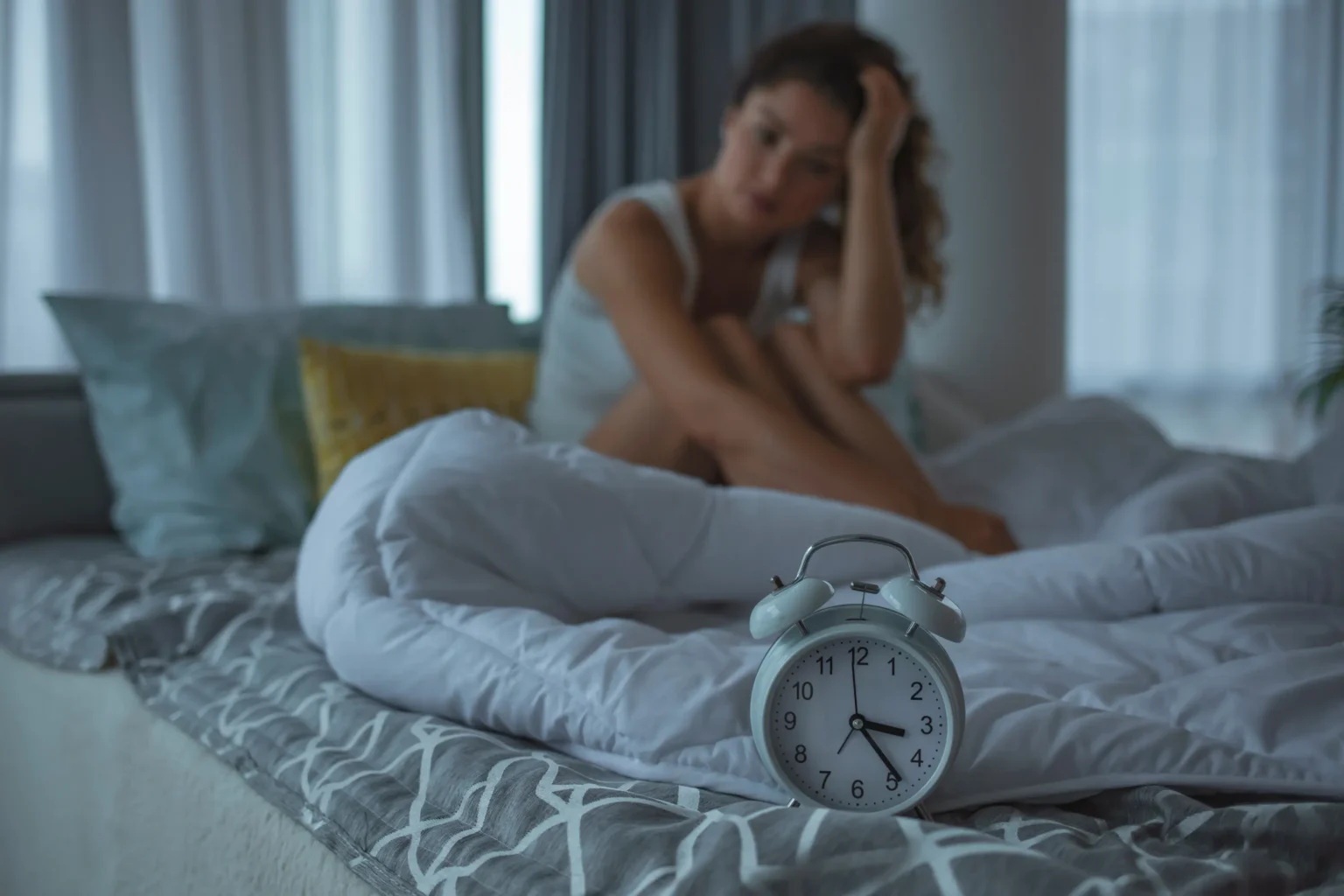
What is Insomnia?
Table Of Contents
Causes of Insomnia
Several factors can contribute to insomnia, including:
- Stress and anxiety – Work, personal concerns, or health issues can disrupt sleep patterns.
- Poor sleep habits – Irregular sleep schedules, screen exposure before bedtime, and an uncomfortable sleep environment can contribute to difficulty sleeping.
- Medical conditions – Chronic pain, acid reflux, asthma, and neurological disorders can interfere with sleep.
- Medications – Certain prescriptions for high blood pressure, asthma, and depression can disrupt sleep.
- Caffeine, nicotine, and alcohol – These substances can prevent restful sleep, especially when consumed close to bedtime.
- Sleep disorders – Conditions like sleep apnea and restless legs syndrome can cause frequent nighttime awakenings.

Symptoms of Insomnia
Symptoms vary in severity but often include:
- Difficulty falling asleep
- Waking up frequently during the night
- Waking up too early and not being able to fall back asleep
- Daytime fatigue or sleepiness
- Difficulty concentrating or memory problems
- Increased irritability or mood changes
- Reduced performance at work or school
Types of Insomnia
- Acute Insomnia – Short-term sleep disturbances due to stress or environmental changes.
- Chronic Insomnia – Difficulty sleeping for at least three nights per week for three months or longer.
- Onset Insomnia – Trouble falling asleep at the beginning of the night.
- Maintenance Insomnia – Waking up frequently during the night or too early in the morning.
Diagnosis of Insomnia
A sleep medicine specialist may evaluate sleep patterns, medical history, and lifestyle factors to diagnose insomnia. Diagnostic tools may include:
- Sleep diary – Recording sleep habits and disturbances over time.
- Actigraphy – A wearable device that tracks sleep-wake patterns.
- Sleep study (polysomnography) – An in-lab test that monitors brain activity, heart rate, breathing, and movements during sleep.
Treatment Options for Insomnia
Treatment depends on the severity and underlying cause of insomnia. Options may include:
Cognitive Behavioral Therapy for Insomnia (CBT-I)
CBT-I is a structured, evidence-based approach that helps address behaviors and thoughts interfering with sleep. It includes:
- Sleep restriction therapy – Limiting time in bed to improve sleep efficiency.
- Stimulus control therapy – Establishing a consistent sleep routine and limiting activities in bed.
- Relaxation techniques – Breathing exercises and mindfulness strategies to reduce anxiety before bedtime.
Medications
Sometimes, sleep aids or medications may be prescribed for short-term relief. Options include:
- Prescription sleep medications (used under medical supervision)
- Over-the-counter sleep aids (short-term use only)
- Melatonin supplements (to regulate sleep-wake cycles)
Lifestyle and Home Remedies
- Maintain a consistent sleep schedule – Go to bed and wake up simultaneously each day.
- Create a comfortable sleep environment – Keep the bedroom cool, dark, and quiet.
- Limit screen time before bed – Reduce exposure to blue light from phones and tablets.
- Avoid caffeine and heavy meals in the evening – These can disrupt the ability to fall asleep.
- Incorporate relaxation techniques – Yoga, meditation, or deep breathing can help prepare the body for sleep.
When to Seek Medical Attention
If sleep disturbances persist for more than a few weeks or interfere with daily life, it’s crucial to seek medical attention. Aa sleep specialist can provide an evaluation and treatment plan. Chronic insomnia may require a combination of behavioral therapy, lifestyle changes, and medical interventions, and a specialist can guide you through this process.
Frequently Asked Questions
0
What is the best treatment for insomnia?
Cognitive Behavioral Therapy (CBT-I) is considered the most effective long-term treatment. While medications may help in the short term, lifestyle changes and behavioral therapy provide sustainable results.
0
Can insomnia be a sign of another health condition?
Yes, insomnia can be linked to conditions such as anxiety, depression, sleep apnea, or chronic pain. A medical evaluation can help identify underlying issues.
0
How many hours of sleep are needed per night?
Most adults need between 7-9 hours of sleep per night. Chronic sleep deprivation can lead to various health issues.
0
Can diet affect sleep?
Yes, consuming caffeine, alcohol, or heavy meals close to bedtime can interfere with sleep. A balanced diet with sleep-supporting nutrients like magnesium and melatonin can help improve sleep quality.
0
How does stress impact sleep?
Stress increases cortisol levels, making it harder to relax and fall asleep. Practicing stress-reducing techniques like meditation and exercise can improve sleep quality.
0
When should a sleep study be considered?
If insomnia is accompanied by snoring, daytime fatigue, or breathing difficulties during sleep, a sleep study may help diagnose underlying conditions like sleep apnea.

